December 13, 2022
Headlines
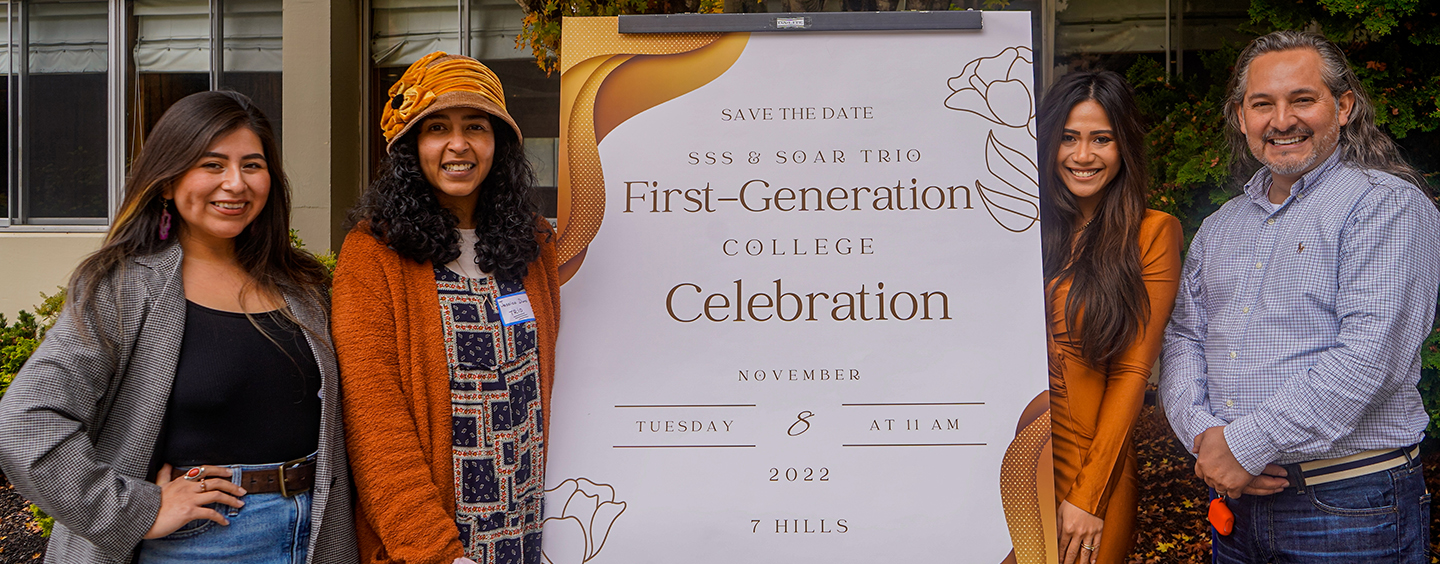
SF State’s fourth First-Generation College Celebration Day, hosted jointly by Student Support Services (SSS) and Student Outreach and Academic Retention (SOAR) TRIO, was held on campus at Seven Hills on National First-Generation Day, November 8. Celebrations around the nation have been held on this day since 2017, when the Council for Opportunity in Education and the National Association of Student Personnel Administrators created this day to recognize and honor first-generation students.
Spring 2023 begins the second phase of our campus’ transition from iLearn to Canvas. Beginning in Spring 2023, all officially scheduled courses will be created in Canvas automatically instead of iLearn. Faculty not ready to transition to Canvas who wish to continue teaching in iLearn can elect to use iLearn instead of Canvas via the Class Data Management website by following the steps in an online Academic Technology guide. Instructors who wish to use Canvas will not need to do anything. Their courses will automatically appear in Canvas once they are assigned on the official class schedule.
Note that the last day to choose iLearn over Canvas is Feb. 17, 2023, the add/drop deadline date for the Spring 2023 Semester.
Learn more on the Academic Technology Central website.
Do you have a student or know a student who has written an exceptional, timely, or simply interesting paper about cities, urban spaces or urban life? Encourage them to submit their work to the Urban Action Journal!
The Urban Action team invites authors, poets, photographers, and other creative individuals to submit their work for consideration for the upcoming 2023 issue. The journal is accepting any paper or creative work produced during the 2021-2022 or 2022-23 academic years. The journal accepts scholarly and creative work produced by undergraduate and graduate students from any major.
Published at San Francisco State University since 1979, Urban Action is an annual journal edited by undergraduate students enrolled in Urban Studies & Planning courses at SF State. Over the years, Urban Action chronicled the evolving, changing and ongoing interests of SF State students. Submission of work previously turned in for classes is encouraged, but not required. All scholarly and creative work will be considered. Prospective authors and artists are encouraged to check out past issues of the journal for examples of relevant topics/material.
The deadline for priority consideration for the 2023 issue is December 10, 2022. However, submissions will be accepted until March 1, 2023. Potential contributors may submit and view the submission guidelines.
If you have any questions or would like further information, email urbanaction@sfsu.edu.
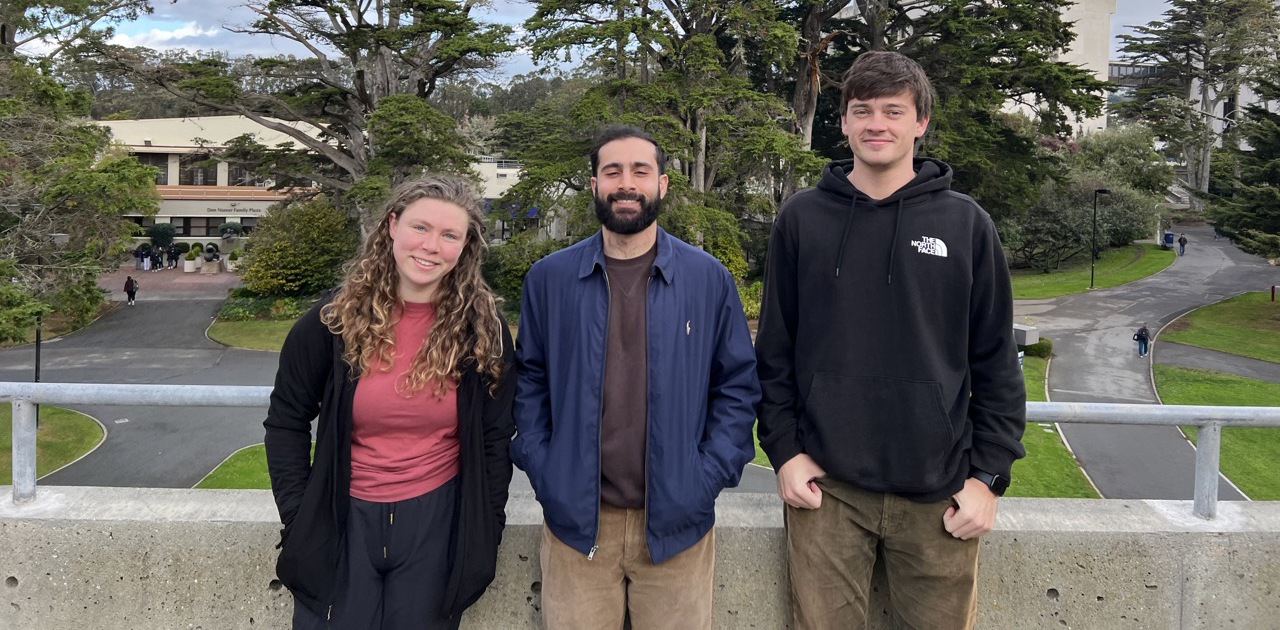
Left to right: Maty Kirkes, Omar El-Kurd and Patrick Bialy
Kinesiology grad student Omar El-Kurd and undergrads Patrick Bialy and Maty Kirkes published a peer-reviewed article in the Journal of Physiology, titled “What about hybrids? Supplemental methods for skeletal muscle fiber typing.” The article was submitted as part of a Journal Club program that gives students the opportunity to publish reviews/discussions/critiques on recent original research in physiology. Their article shared novel insights regarding new fiber typing methods in skeletal muscle. The recognition of these methods will encourage future studies to use them, progressing the understanding of human muscle physiology. This publication is a first for these students and was conducted as part of their capstone/independent research classes under the mentorship of Associate Professor of Kinesiology Jimmy Bagley in the Muscle Physiology Lab.
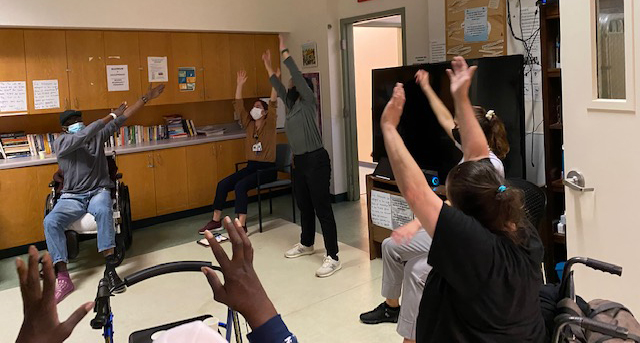
Doctor of Physical Therapy (DPT) students Sophie Baghdoyan (CO2024), Jocelyn Morales (CO2024) and Pam Ygrubay (CO2025) led an exercise class for residents at the San Francisco Medical Respite and Sobering Center. The well-received class focused on general physical activities for all abilities and a full body check. The center provides respite beds and sobering facilities, along with temporary housing and specialized support services, for medically frail people impacted by homelessness.
The exercise class is part of the community partnership elective precepted by Physical Therapy Assistant Professor Casey Nesbit and Associate Professor and Chair Jet Lee. In this elective, students from the UCSF/SFSU Graduate Program in Physical Therapy participate in student governance and engage with three community partners that serve marginalized populations in San Francisco. Four to five times a month, students serve the patients through interprofessional telehealth clinics and health education/screening activities.
SF State Transforms, a campus NSF ADVANCE grant, has released a Fall 2022 project newsletter highlighting faculty and the project’s equity-focused efforts to transform campus. This newsletter (the project’s fourth) celebrates the accomplishments of Professor and Chair of Economics Anoshua Chaudhuri, announces this year’s faculty recipients of the ADVANCE Scholarship Hub program and highlights Transforms programs, partnerships and other campus equity efforts. Please see the newsletter on the ADVANCE website or reach out to transforms@sfsu.edu for more information.
Professor of Physical Therapy Diane D. Allen collaborated with Physical Therapy faculty member Sam Pak of UCSF on a book chapter on measurement choices in health care that was published on December 3. The chapter, titled, “Improving Clinical Practice with Person-Centered Outcome Measurement,” is in the ebook, “Person-Centered Outcome Metrology: Principles and Applications for High Stakes Decision Making,” edited by Fisher and Cano. For this chapter, the authors focused on barriers and recommendations for promoting high-quality and equitable health care tailored to the individual patient. Some of the dilemmas clinicians must navigate when choosing appropriate measures include: personalization versus standardization, satisfaction versus effectiveness, and scientific rigor versus practical convenience. The authors advocate a “both/and” approach that capitalizes on collaboration among disciplines, and among researchers, clinicians and patients.
Lecturer Faculty in Kinesiology Ana Maria Barrera and colleagues published an article, “Cultivating cultural capitals in introductory algebra-based physics through reflective journaling,” in Physical Review Physics Education Research. The study highlights how reflective journaling as an asset-based practice helps students feel heard and affirmed; it is one way for instructors to humanize their students and recognize the community cultural wealth that students bring to physics.
Barrera also delivered a conference presentation in collaboration with the American Education Research Association at the World Education Research Association focal meeting, which took place in April 2022. The presentation was titled, “Cultivating inclusion through reflective journaling in STEM.” The presentation focused on supporting connections to STEM students’ life experiences and affirming their intersectional identities and cultural wealth through reflective journaling. This research was part of her post-doctoral fellowship with SF BUILD.
Park presents research on music-themed critical media literacy practice and young bilingual children
Professor of Child and Adolescent Development Soyeon Park co-presented research at the 72nd Annual Conference of Literacy Research Association in Phoenix, Arizona. The paper, titled “Facilitating critical conversations about gender with young bilinguals through music-themed critical media literacy,” focused on the potential of connecting music to early critical media literacy to support young bilingual children's critical engagement with media resources.
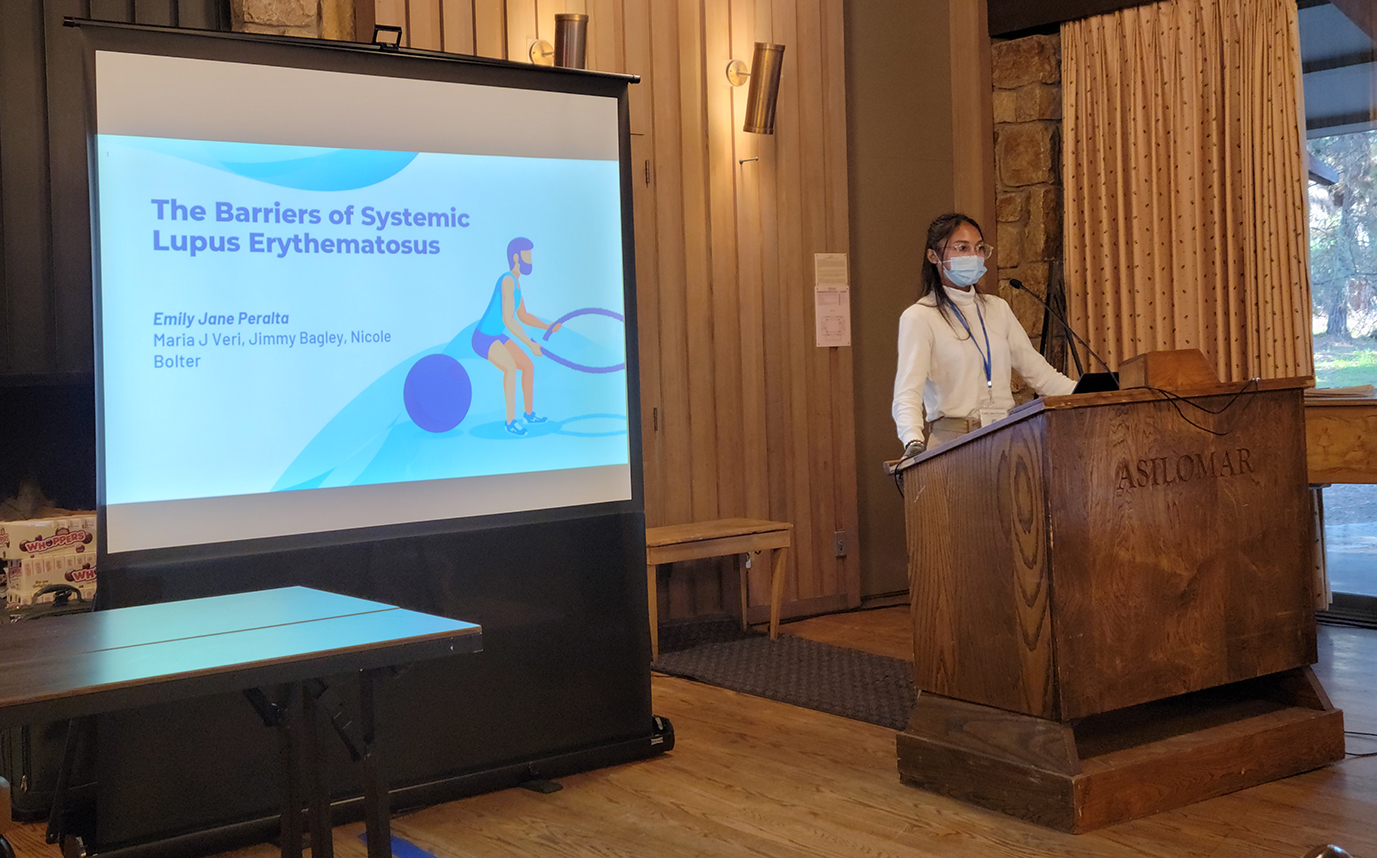
Kinesiology graduate student Emily Peralta, along with Professor Maria J. Veri and Associate Professor Nicole Bolter, presented preliminary findings from her thesis, “The Barriers of Systemic Lupus Erythematosus that Affect an Individual’s Self-Efficacy for Physical Activity,” at the 97th Annual Conference of the Western Society for Physical Education of College Women in Pacific Grove, California, on November 18. Peralta’s thesis explores the experiences of individuals living with Lupus through the use of one-on-one semi-structured interviews with participants. Interviews focused on understanding how living with Lupus affects participants’ engagement with physical activity and sheds light on the barriers and limitations they face.
Assistant Professor of Nutrition and Dietetics Zubaida Qamar (Family, Interiors, Nutrition & Apparel Department) and co-authors published “Creating a Culture that Supports Food Security and Health Equity at Higher Education Institutions” in the Public Health Nutrition journal. The team highlights risk factors and impacts for college food insecurity and specifies multidimensional approaches toward reaching health equity and food security at higher education institutions.
Professor of Kinesiology Maria J. Veri led a seminar on Social Justice Pedagogy (SJP) as part of the 2022-2023 Chancellor’s Doctoral Incentive Program (CDIP) First Friday Seminar Series on October 7. Her talk was based on research published by the NIH-funded SF BUILD SJP team of CHSS faculty Mickey Eliason, Sherria Taylor, Nicole Bolter and Juliana van Olphen. Veri’s presentation focused on sharing the experiences of instructors who engage in SJP as well as strategies CDIP fellows could use to integrate social justice principles into their pedagogical practice.

Darlene Yee-Melichar, professor and coordinator of Gerontology in the School of Public Affairs & Civic Engagement, was selected to serve on California’s Aging & Disability Resource Connection (ADRC) Advisory Committee. Yee-Melichar will provide expertise and knowledge as a caregiver consumer advocate for the advisory committee beginning January 1, 2023, joining SF State Professor Emeritus Ramon Castellblanch (Public Health) on this important statewide effort.
States are authorized to promote and implement the ADRC partnership model as defined in 42 U.S.C.102(4) under the federal Older Americans Act. The ADRC Program is authorized in the California Welfare & Institutions Code (WIC), Sections 9120-9123 and administered by the California Department of Aging in collaboration with the California Departments of Health Care Services and Rehabilitation. California’s ADRC Advisory Committee’s purpose is to engage stakeholders in identifying and implementing strategies to strengthen, sustain and expand the ADRC/No Wrong Door model throughout the state.
The ADRC Advisory Committee represents consumers, providers and advocates who have a commitment in establishing a No Wrong Door System and Person-Centered Practices to better serve California’s older adults, people with disabilities and their family and caregivers.
Current Events

SF State End of Year Celebration
Note location change
Thursday, December 15, 3-5 p.m., Jack Adams Hall, Cesar Chavez Student Center
Valerie Francisco-Menchavez
Assistant Dean for Restorative and Transformative Racial Justice and Associate Professor of Sociology Valerie Francisco-Menchavez commented on the growing visibility of Filipino American culture. The San Francisco Standard 11/26/2022
Erik Peper
Professor Erik Peper (Department of Recreation, Parks & Tourism/Institute of Holistic Health Studies) discussed coping with tech stress in an interview with Dr. Russell Jaffe. Dr. Russell Jaffe YouTube channel, 11/1/2022
Featured Photo
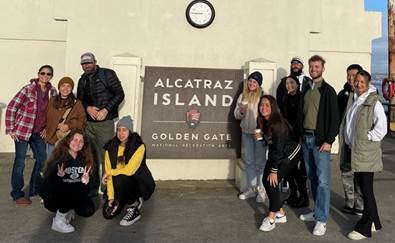
Students from “RPT 390: Leisure Travel and Tourism” prepare to board the ferry to Alcatraz. The island has both an interesting history, as well as being an important example of the important challenge of presenting many cultural stories in this and other units of the National Park Service.
Submit an Item
January 11, 2023 is the deadline to submit items for the January 17 issue of CHSS Connection. Send submissions to mbroder@sfsu.edu.